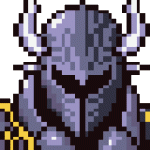I'll try to help a bit. I do not understand your main character.
"The focus of the game revolves around “Jenna” when the city became filled with monsters she is focused on finding her two children and getting out as fast as she can. While looking for supplies and heading through the city she meets some of the survivors who change her focus from her kids to actually saving them, while discovering the plot behind all this."
There is some ambiguity here which is very dire: where you say "change her focus from her kids to actually saving them," it appears that the word "them" is referring to these new found survivors. Is that the case?
No mother just up and forgets her children in a crisis and (frankly) any mother I can imagine doing this isn't a character I can get behind. This isn't necessarily a write off, but it needs a lot of flushing out, especially if it's part of the hook (i.e. it's early in the design doc and the first exposure the reader has to the main character).
When you say "children" the assumption is "young children", which I read between the ages of like eight and 14. Are her children old enough to be semi-capable (late high school age, early college) or fully capable (mid 20s or older)? What's the mother's relationship with her children? And how many are there? Why is she so suddenly able to change her focus to saving these random survivors? Does she believe her children are dead? Does she believe that they're able to survive on their own? Is there some kind of time constraint on "solving the mystery" of the game and some reason she's uniquely suited to deal with it? Why her? This makes especially little sense as she's supposed to be a normal person, i.e. not some scientist or soldier or whatever.
Then there's this follow-up:
The game will open with Jenna and her husband playing with their children at a park (laughter and smiling) all done by voice and photos. It will than shift to Jenna and John having an argument on how he always has to leave for weeks at a time. Jenna receives a letter from him stating that he plans he to take her to court to get full custody of the kids, classifies her as an unfit mother as he is the only bringing in income. The judge sides with him and he moves across the city from Jenna, she currently has no visitation rights.
If he's the only one bringing in income and he's filing for divorce, he's got a massive, losing battle ahead of him both for custody and - frankly - half of his assets. She'll be getting some rather impressive alimony and, in all likelihood, keeping custody of the children. For a mother to be declared unfit (especially to the point where she's refused visits) some very serious stuff needs to be happening; maybe Jenna's a recovering heroine addict and John leverages that against her. Maybe John hid her parole letters from her so she missed some appointments and she's in hot water for that; build a case up for John to get the kids and for the player to side with Jenna. Were I you, I'd (legit) find a family friend who's a divorce lawyer (or a student of that subset of law) and I'd talk to them about this at great length to see how you can make it really ring true. The more accurate, sensible details you can provide, the more believable this part of your game will be.
Additionally, you really want to flesh out where this animosity between John and Jenna is coming from. One path you might choose could be, for instance, that John has been cheating on her and he's subconsciously racked with guilt but he's trying to convince himself he's in the right...or maybe he's actually in the right (i.e. maybe Jenna really is unfit) but that's a tricky sell. If it's obvious at the start that Jenna is unfit and a big jerk that shouldn't have custody of her children, then that's a hard sell for a protagonist. You could (maybe) build a good case for her early (that she's a great mom) then slowly let the idea settle in (through flashbacks, for instance) that she's actually a very bad mother and she's got a LOT of regret pent up over that. She and John clearly have a lot of built up feelings (and some extreme denial) built up in a case like this, but it gives you time to build her up as an anti-hero trying to make things right...and then her struggles against "this monster threat" is suddenly a metaphor for her struggling within: her efforts to not just "save her children from this monster threat" but to save her relationship with her children (and possibly her husband). If you find a way to get an audience, no matter how small, to cheer for an ex-heroine addict failure of a mom having an epiphany, stopping the zombies, and finding self respect, new found strength, and redemption, you will have a big winner of a story here.
You could tone the whole relationship schism thing down a HUGE notch and drop the ideas of divorce and custody; just have John "take the kids to his parents house to give Jenna time to think" which would necessitate a pretty vehement argument and probably the presence of John's parents there to back him up on so serious and awkward a thing. That makes the hope at a redeeming ending more tangible for the player early on and eschews the difficult legal trivialities while still affording you plenty of avenues for huge emotional motivations.
Finally, have you played I Am Alive? It's pretty cheap on Steam (and a frequent Steam Sale candidate) and your design has quite a bit in common with it. You'll want to check it out and see what worked for them and what didn't.









